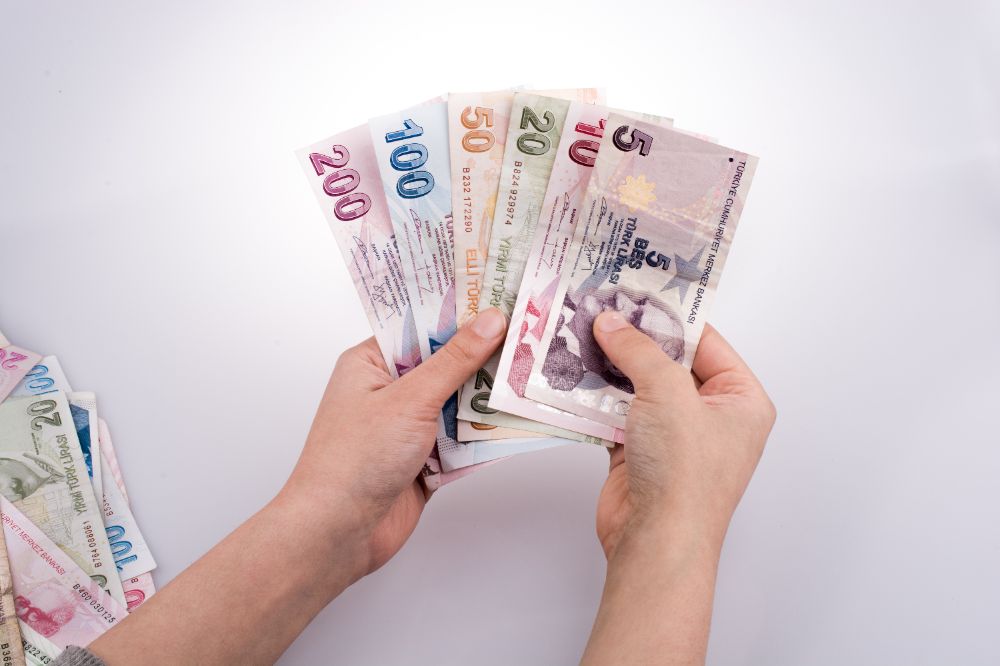
Enhancing the Cash Reserves of the Central Bank of Turkey: A Detailed Analysis of Recent Economic Developments
Net Recovery of Central Bank Reserves: A Strategic Outlook
Economic experts point to a significant improvement in the net reserves of the Central Bank of Turkey, excluding swaps, noting the shift from negative to positive. President Recep Tayyip Erdoğan confirmed an increase of $44 billion in the bank's foreign exchange reserves over the past year, bringing the total to over $142 billion.
Differences Between Net and Total Reserves: Key Points in Economic Analysis
Economists indicate that the announced figures include the total reserves, not the net figures free from swaps, which are not officially disclosed. However, reaching the "zero point" is considered a positive development, particularly in light of the previously negative net situation.
Economic Developments and Currency Stability: New Measures and Policies
Following Erdoğan's victory in the May 2023 elections, Turkey underwent radical changes in economic policy under the leadership of his deputy, Cevdet Yılmaz, and the Minister of Treasury and Finance, Mehmet Şimşek. These changes have led to a new approach aimed at reducing inflation and promoting stable economic growth.
The Future of the Turkish Lira and Inflation: Expectations and Challenges
Experts expect the Turkish Lira to stabilize in the currency market until fall, with annual inflation expected to decrease starting next month. Şimşek emphasized the success of the new economic program and the progress made towards achieving the desired economic goals.

The Role of the Central Bank in Ensuring Economic Stability
The Central Bank of Turkey holds reserves for several purposes, including supporting monetary policies and exchange rates, maintaining the necessary foreign currency for debt payments, and increasing confidence in the economy internationally.
The Positive Impact of Reaching "Zero"
Reaching a net reserve "zero point" is seen as a positive indicator for the Turkish Lira and default risk indices. Experts explained that this value shows the bank's assets exceed its liabilities, which boosts confidence in the country's monetary policy.
The Relationship Between Reaching Zero Net Reserves and Strengthening the Economy
Reaching a zero net reserve in the Central Bank of Turkey is a positive indicator reflecting the improvement in the bank's economic and financial capacity, which enables more effective control over monetary policy. This improvement, in turn, bolsters confidence in the Turkish economy, serving as a catalyst for decreasing inflation rates.
As inflation begins to decrease, interest rates are expected to follow suit, maintaining a margin of approximately four points between the inflation and interest rates. This gap contributes to the economy's stability and increases its attractiveness for domestic and foreign investments. The decrease in inflation and interest rates is expected to start in the third quarter of this year, paving the way for a period of sustainable economic growth and general improvement in living conditions.
The Impact of Rising Interest Rates on the Real Estate Market and Future Outlooks
Rising interest rates negatively affect the overall real estate market in Turkey by increasing the cost of mortgage loans, which leads to a decrease in purchasing demand. This decline, in turn, leads to stabilization or a drop in property prices. However, forecasts suggest that as interest rates begin to fall, property prices are expected to rise again.
The current period—still marked by high interest rates—is deemed an ideal time for investment in the Turkish real estate market. Investing now means benefiting from relatively low prices, and with expected interest rate decreases in the near future, investors are anticipated to realize significant gains from the expected increase in property values. Thus, the current time is considered a valuable investment opportunity that could yield significant financial returns as the market begins to recover.
This analysis highlights the pivotal role played by the Central Bank of Turkey in enhancing national economic stability and underscores the importance of transparency in reporting cash reserve figures.
Related Articles

Escrow Accounts in Dubai: How They Protect Your Real Estate Investment
Dubai has become one of the world’s most attractive destinations for real estate investors. With strong government regulations, clear processes, and transparent systems, property buyers often ask: Is real estate investment in Dubai safe? One of the key answers lies in the Escrow account system. This article explains what an Escrow account is, how it protects buyers, and why it plays a major role in reducing risk in Dubai’s property market.

Residence Permits in Dubai Through Real Estate Investment: Everything You Need to Know
Dubai continues to be one of the most attractive destinations globally for real-estate investment — not only because of its world-class infrastructure and tax-friendly environment, but also because foreign investors can secure residence permits via property ownership. This article outlines the two main investment-linked residence routes in Dubai, details their requirements, explains how each works and highlights recent regulatory enhancements from the UAE government.

Dubai 2040 Urban Master Plan: A Vision That Will Reshape Real Estate Markets
Dubai has long been synonymous with bold urban planning, iconic architecture, and aggressive growth. The unveiling of Dubai’s 2040 Urban Master Plan marks its latest leap into long-term thinking, combining sustainability, smart infrastructure, and population management into a two-decade roadmap. As real estate stakeholders—investors, developers, homebuyers—seek to align with future trends, the 2040 plan offers both opportunity and risk.
In this article, we’ll explore:
- What the Dubai 2040 plan broadly entails
- Key mechanisms by which it can influence real estate supply, demand, and pricing
- Projected effects on ROI across residential, commercial, and mixed-use sectors
- Strategic considerations and warnings for investors
- How to position yourself now to benefit
Comments (0)
You need to be logged in to comment